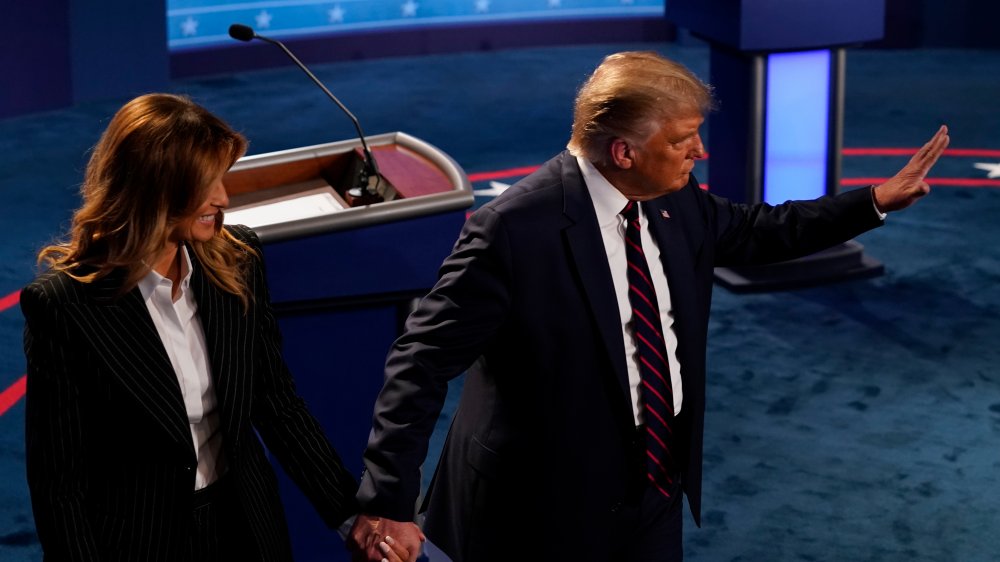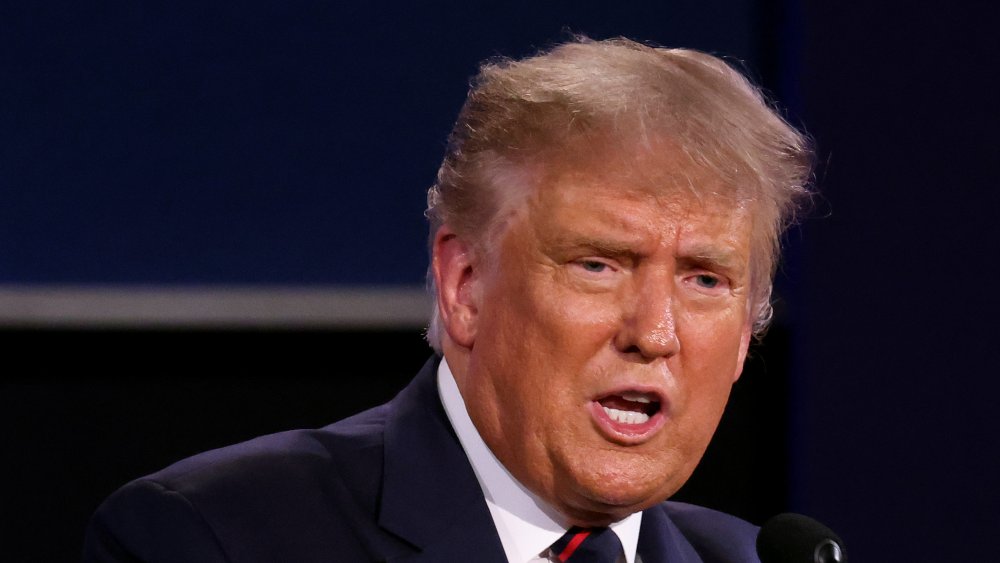Expert Makes Bold Claims About Why Trump Backed Out Of The 2nd Debate
While the first presidential debate of the 2020 campaign season was, umm, an event never to be forgotten (no matter how much we might wish we could erase it from our brains), and the vice-presidential debate was mostly memorable due to a two-minute cameo from a housefly who seemed to mistake Mike Pence's head for a spiderweb, the second debate, sad to say, is a non-starter. Unless, that is, the third-debate-that-was-to-be, and evidently still is to be, is now the second debate, so in essence, it's the third debate that was canceled, and the second one merely rescheduled.
Did we lose you yet? At any rate, with all the candidates taking a bye week, we've got time to dig deeper into all the whys and wherefores behind why that debate (no matter how you number it) was stricken from the schedule. Donald Trump's refusal to participate was ostensibly due to the fact that he feels a virtual debate — a format that was adopted for everyone's protection as he is still recovering from a COVID-19 diagnosis — would be a waste of his time and would also allow the moderators to cut him off at will (or the dictates of the Democrat-controlled fake news media). Wanting a little more insight into his mindset, however, we consulted with psychologist Dr. Reneé Carr, the expert who also shared her perspective in what Trump's body language revealed during that seemingly long-ago first debate.
Trump's tactics won't work in a virtual arena, says expert
Carr feels that Trump refuses to participate in a virtual debate because his debating technique relies on "aggressive behavior and domineering personality." She says that in-person debates allow him to "over-talk his opponents and moderators," a bullying tactic that works for him. Carr says the president is aware that he can get away with breaking debate rules since, due to his position, most moderators will be reluctant to rebuke him. She explains that this lets him "disarm his opponent(s)," plus, it allows him extra speaking time.
A virtual debate, however, will allow the moderator to mute him. Carr explains this will "render impotent his aggressive debate style." She says Trump spoke the truth when he complained of not wanting moderators to be allowed to shut him up, and she thinks it makes him feel "angry that his bullying style will be prevented," and also "psychologically insecure" at the fact that he won't be the one to control the debate. Deep down, Carr thinks Trump might feel some doubt in his ability to debate based on actually answering the questions, as "his comfort rests in being able to ignore, intimidate, and control the debate flow." Well, he (and we) have still got that third-turned-second debate to look forward to. Tune in next week when both candidates are attacked by a swarm of angry bees! Or a flash mob of break-dancing clowns! Or ... who knows. Anything can happen in this craziest of campaign seasons.

